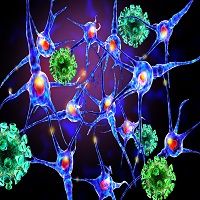Vitamin D Improves MS Relapse Rate
Vitamin D supplements may reduce the annualized relapse rate in patients with relapsing-remitting multiple sclerosis.

A recent study found that vitamin D supplements may reduce the annualized relapse rate (ARR) in patients with relapsing-remitting multiple sclerosis (RRMS). The study, conducted by Julie Hejgaard Laursen, MD, PhD, of the Department of Neurology at Copenhagen University Hospital, and colleagues was published in the Journal of Multiple Sclerosis recently.
This study is a substudy and included 134 RRMS patients who were being treated with natalizumab at an outpatient Danish MS center in 2009. To participate, patients must have had natalizumab treatment for at least 1 year. Of the 134 participants, 43 had low serum levels of 25(OH) D or less.
The authors say they found “that recommending vitamin D supplements in patients with vitamin D insufficiency or deficiency was associated with a significant increase in serum 25(OH) D concentrations.” More importantly, they say, “increases in 25(OH) D levels were significantly related with decreases in ARR.” However, that relationship was true only for patients who had baseline levels of 25(OH) D below 50 nmol/l.
The study is limited by the lack of a control group, and by only one 25(OH) D measurement per year for each participant. The researchers note, though, that blood samples were only collected during the winter.
The question of whether or not high doses of vitamin D3 can cause negative side effects has yet to be answered by the research community, leading the authors of the present study to favor small doses daily. They conclude that “simple recommendation of vitamin D supplements to RRMS patients with 25(OH) D less than 50 nmol/l resulted in a significant increase in mean 25(OH) D.”